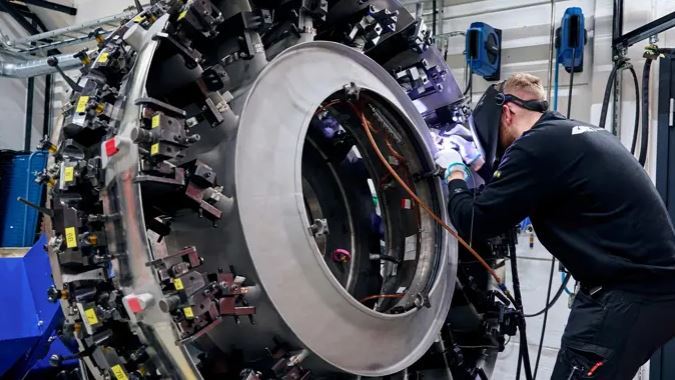Is Now the Right Moment to Invest in Unilever Shares?
Amidst the corporate challenges faced by Unilever, shareholders had a relatively positive experience in 2024. The company reported robust revenue growth, improving profit margins, and delivered a total return of 24%, outpacing its main American competitor, Procter & Gamble, which saw a return of 17%. However, the company’s CEO, Hein Schumacher, has been dismissed following a brief tenure of just 20 months.
Unilever, recognized for its extensive portfolio of brands including Dove soap and Hellmann’s mayonnaise, was navigating its latest transformation initiative under Schumacher, which was dubbed the “growth action plan” aimed at enhancing productivity and re-establishing growth momentum. This initiative was part of an ongoing series of strategic overhauls, following previous plans like the “sustainable living plan” in 2012, “connected 4 growth” in 2016, and “compass for sustainable growth” in 2020.
Progress had been evident, thanks to a more concentrated focus on core brands, evidenced by improving sales and the upcoming divestiture of its £13 billion ice cream business. In 2018, Unilever’s return on invested capital was 28.9%, which dipped to 18.1% last year, although this represented a near one percentage point increase from 2023. Additionally, gross margins have risen from under 40% in 2022 to 45% by the end of last year.
The promotion of Chief Financial Officer Fernando Fernandez to CEO is seen as aligned with his distinctive management style. The Argentinian executive, who has been part of Unilever since 1988, is characterized as having a more unconventional approach, possibly allowing him to make bold decisions that could yield swift results.
Fernandez’s agenda appears extensive, particularly as shareholders are urging the company to streamline its operations. Unilever has been preparing to list its ice cream division in Amsterdam, while Schumacher had committed to divesting up to £1 billion in its food brands. The company has already pared down its food segment over the last decade, including sales of spreads and tea.
With the ice cream sector identified as less profitable—represented by an operating margin below 7% last year versus an average margin of 16.7% across its other divisions—there are expectations for further restructuring. Investors are also likely to pressure Fernandez regarding the potential spinning off of its €13.4 billion food business. This move could create a more streamlined organization focused on beauty, personal care, and home care, though concerns exist about the complexities of disentangling it from Unilever’s comprehensive supply chain.
Unilever continues to leverage its strong brand recognition, with Dove alone generating around €5 billion in sales during 2024. A significant portion of the company’s revenue—over 50%—originates from emerging markets with substantial operations in India, China, Brazil, and Indonesia, positioning it well to benefit from rising consumer demands in those regions. Investment sentiment for Unilever remains favorable among stock pickers, including fund manager Terry Smith, who referred to the CEO transition as “good news” for shareholders, describing Fernandez as “basically dynamite.”
Since the last evaluation of Unilever as a hold, its shares have increased by 3%, despite experiencing volatility. Currently, the stock trades at 17.2 times projected earnings, roughly in line with its five-year average of 17.9. The abrupt leadership change introduces significant uncertainty, particularly as Schumacher was leading a positive trajectory. The board hopes that Fernandez will take decisive actions, although a more measured strategy may be prudent for the £116 billion giant. Advice: Hold; Reason: Positive turnaround signs but leadership change poses risks.
WPP
WPP, one of the leading global advertising firms, experienced a sharp decline recently, with a loss of £400 million in its market valuation. The FTSE 100 entity has been facing prolonged struggles due to diminished demand for advertising, and a cautionary forecast for organic revenue further unsettled investors. As its shares hover near four-year lows, could this present an opportunity for value-driven investors?
The company’s financial results were disappointing; overall revenue declined by 0.7% to £14.7 billion in 2024, with pre-tax profit slipping by 3.8% to £1.5 billion. CEO Mark Read, who took charge in 2018 succeeding Sir Martin Sorrell, provided a cautious outlook, anticipating stagnant revenues this year amidst potential global economic challenges, including trade disputes and rising inflation.
WPP’s performance in China, its fifth-largest market, remains problematic. While comparable revenue fell by 2.7% in the UK and 0.7% in North America, it plummeted by 20.8% in China.
Although WPP remains a formidable player with a strong client roster—including eBay, Warner Bros Discovery, and Levi’s—fostering significant growth may be a challenge. This is reflected in the firm’s low price-to-earnings ratio of just 7.1, compared notably to about 11.4 for its French competitor, Publicis, and between 9.5 and 10 for Omnicom and IPG, which are undergoing a merger.
Market consolidation may be the most effective strategy for stimulating growth, with the recent $31 billion Omnicom-IPG agreement setting a notable precedent. However, positioning WPP against a competitor of such scale poses its own difficulties. Despite ongoing speculation regarding potential takeovers, the stock’s current valuation appears justified without a clear growth catalyst. Advice: Hold; Reason: Lack of significant growth drivers.




Post Comment